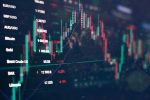The S&P 500 dipped into a bear market amid fears that record-high inflation will prompt the Federal Reserve to implement more aggressive rate hikes. The index declined 4% on Monday, bringing the index 21% below its peak in January. (A bear market is when stocks drop at least 20% from their most recent high.)
While the market downturn has been rough, active managers have been proving their value over the past few months. As the stock market experienced one of its worst months in April, 54% of the large-cap active funds outperformed their benchmark, the Russell 1000. In May, 56% beat the index — and by an average of 11 basis points.
“The strong performance might mark a comeback of active managers, who have struggled with laggard returns and asset outflows over the past decade,” according to Barron’s. “Investors have been moving their money into funds that passively track an index, which often charge much lower fees and thus tend to generate better post-expense returns.”
Bank of America equity and quant strategist Savita Subramanian wrote that active managers’ lean toward value stocks high-quality names has paid off, as high-quality stocks in the Russell 1000 outperformed the low-quality names by 4 percentage points in May.
In looking at active’s success rate year-to-date, Ben Johnson, director of global ETF research for Morningstar Research Services, posted on Twitter on Monday that YTD through June 10, nearly half of actively managed stock funds (49.6%) had outperformed their Morningstar category index, while 44.5% of actively managed bond funds managed to do the same.
But Morningstar’s chief ratings officer Jeffrey Ptak said that this may not be the whole story. Ptak responded to his colleague by noting “a pretty big divide between active US equity (64% beat rate) and int’l equity (30%),” adding that active bond funds had a beat rate of 58% through Q1.
T. Rowe Price offers a suite of actively managed ETFs. T. Rowe Price has been in the investing business for over 80 years through conducting field research firsthand with companies, utilizing risk management, and employing a bevy of experienced portfolio managers carrying an average of 22 years of experience.
For more news, information, and strategy, visit the Active ETF Channel.








